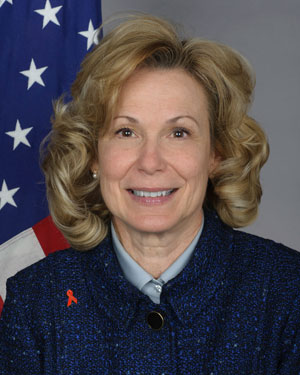
PEPFAR Strategy reaffirms support for HIV/AIDS efforts in over 50 countriesStrategy will ensure access to services by all populations, including the most vulnerable and at-risk groups.
On Tuesday September 19 2017, at the 72nd United National General Assembly, Secretary of State Rex Tillerson released the new U.S. President’s Emergency Plan for AIDS Relief (PEPFAR) Strategy for Accelerating HIV/AIDS Epidemic Control (2017-2020), which reaffirms U.S. support for HIV/AIDS efforts in more than 50 countries, ensuring access to services by all populations, including the most vulnerable and at-risk groups.
The Strategy also outlines plans to accelerate implementation in a subset of 13 high-burden countries that have the potential to achieve HIV/AIDS epidemic control by 2020, working in collaboration with host governments, the Global Fund to Fight AIDS, Tuberculosis and Malaria (Global Fund), the Joint United Nations Programme on HIV/AIDS, and other partners.
The latest PEPFAR data show that, largely through the U.S. government’s support, the HIV/AIDS epidemic is coming under control in 5 of these 13 countries: Lesotho, Malawi, Swaziland, Zambia, and Zimbabwe. These data also indicate that the previously expanding HIV epidemic in Uganda has now stabilized.
According to Ambassador Deborah L. Birx, MD, U.S. Ambassador-at-Large, U.S. Special Representative for Global Health Diplomacy and Coordinator of U.S. Government Activities to Combat Global HIV/AIDS (PEPFAR), ‘as we work together to envision a very different future, what once seemed impossible is now possible because of your compassionate leadership and your commitment in the global fight against HIV/AIDS’.
The announcement was highlighted in The New York Times and Reuters.
Ambassador Deborah Birx further added ‘ this means we have the extraordinary opportunity to change the very course of the HIV pandemic over the next three years’.
Click here to download the strategy.
Click here for the PEPFAR media note.
Click here for the official press release.
WHAT IS PANCAP?
PANCAP is a Caribbean regional partnership of governments, regional civil society organisations, regional institutions and organisations, bilateral and multilateral agencies and contributing donor partners established on 14 February 2001. PANCAP provides a structured and unified approach to the Caribbean’s response to the HIV epidemic, and coordinates the response through the Caribbean Regional Strategic Framework on HIV and AIDS to maximise efficient use of resources and increase impact, mobilise resources and build the capacity of partners.
What are the Global AIDS Strategy 2021–2026 targets and commitments?
If targets and commitments in the strategy are achieved:
- The number of people who newly acquire HIV will decrease from 1.7 million in 2019 to less than 370 000 by 2025
- The number of people dying from AIDS-related illnesses will decrease from 690 000 in 2019 to less than 250 000 in 2025.
- The goal of eliminating new HIV infections among children will see the number of new HIV infections drop from 150,000 in 2019 to less than 22,000 in 2025.
What are the 95-95-95 Targets for ending AIDS?
- 95% of People Living with HIV know their HIV status;
- 95% of people who know their status on treatment; and
- 95% of people on treatment with suppressed viral loads.
HELPFUL LINKS:
Global AIDS Strategy 2021–2026, End Inequalities, End AIDS
https://pancap.org/pancap-documents/global-aids-strategy-2021-2026-end-inequalities-end-aids/
Caribbean Regional Strategic Framework on HIV and AIDS (CRSF) 2019-2025
https://pancap.org/pancap-documents/caribbean-regional-strategic-framework-2019-2025/
